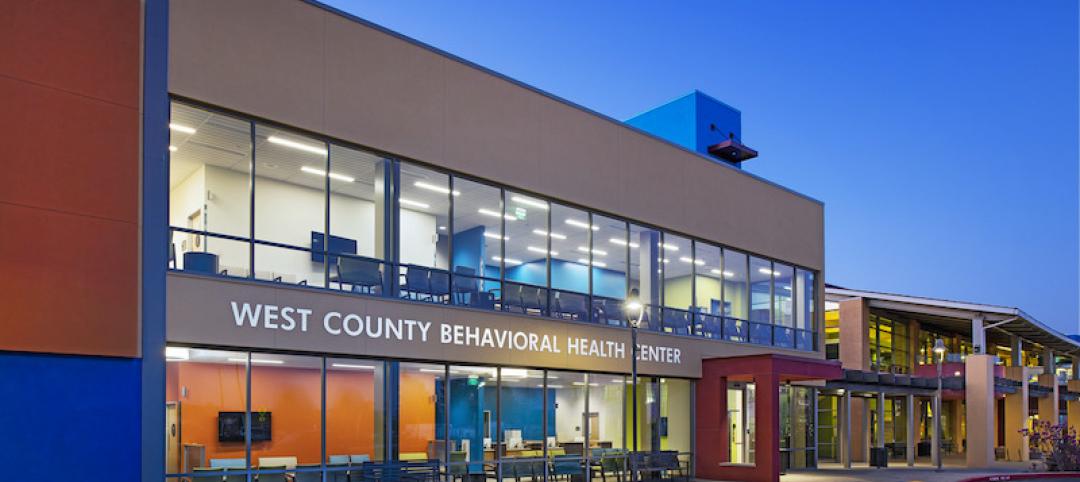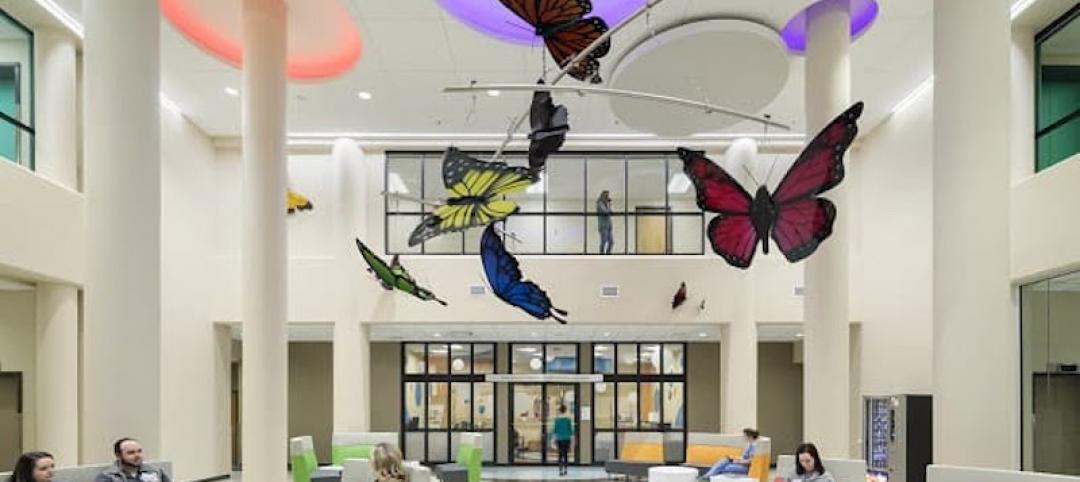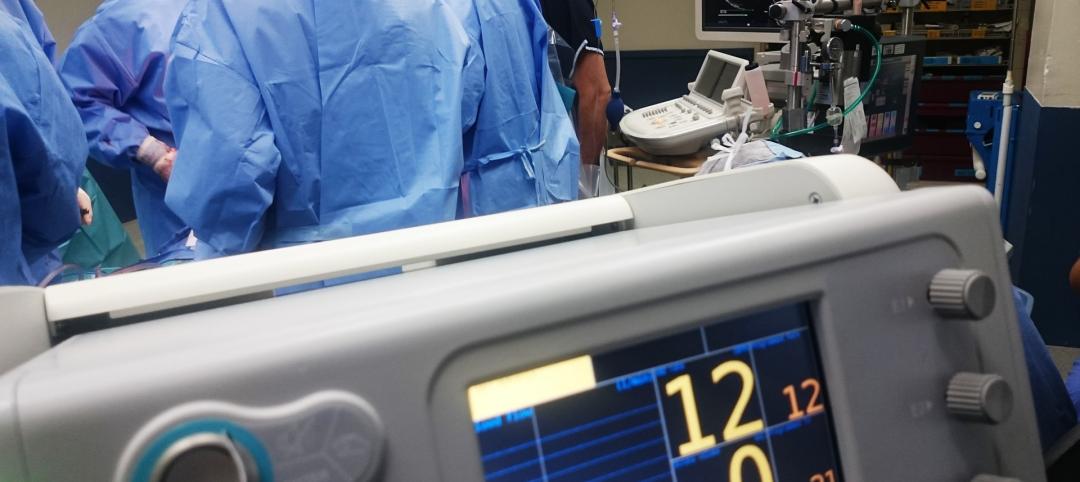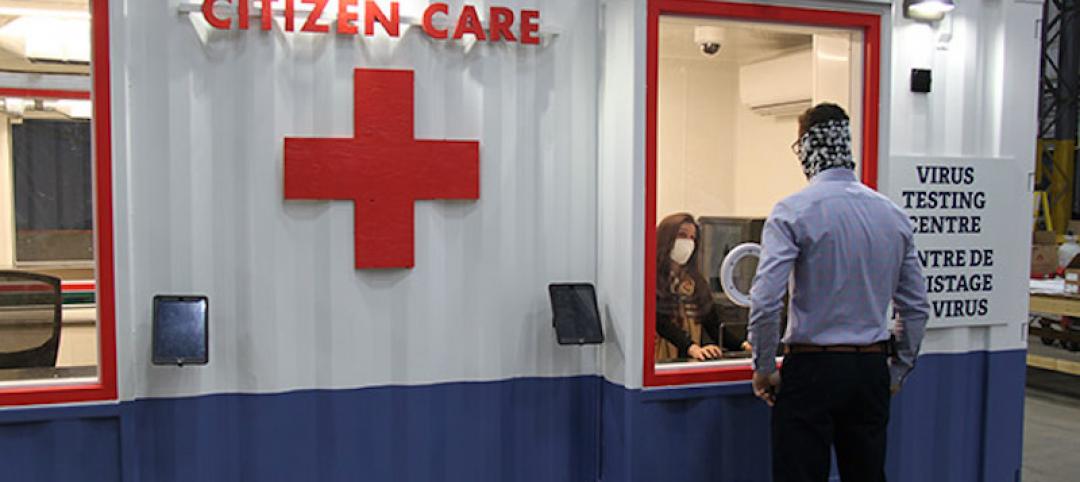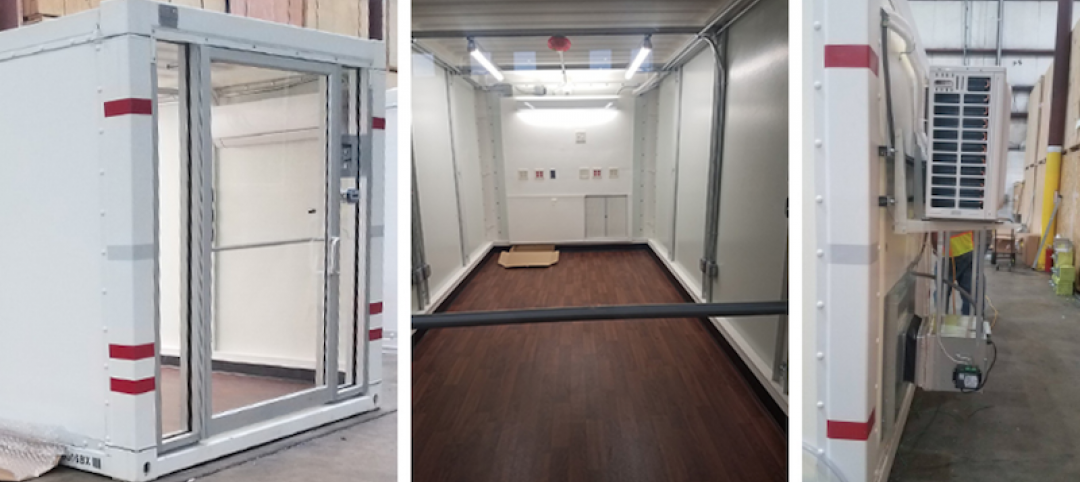Last spring, the U.S. Navy Facilities Engineering Command (NAVFAC) awarded a five-year, $50 million architect-engineering services contract to a joint venture between WSP USA and HKS for the Command’s medical facilities projects around the world.
This so-called indefinite delivery/indefinite quantity (IDIQ) contract covers hospitals, dental clinics, medical clinics, veterinary clinics, laboratories, sustainment/restoration/modernization projects, military construction projects, and medical studies.
The contract is not exclusive to the two firms, but it lets NAVFAC assign certain projects to them. NAVFAC selected seven projects under this contract for 2018, including a 477,000-sf, $298 million health, education, and research facility for the Uniformed Services University at Walter Reed National Military Medical Center in Bethesda, Md.; and a 44,000-sf medical and dental clinic in Jacksonville, N.C. There’s also a renovation component, plus four research studies that will help define future projects.
See Also: N.Y. builder pushes to get military trauma centers up and running quicker
WSP, which has been active in the healthcare sector for a quarter century, decided to compete for this contract after noticing that the AE presence in the government sector was “not as strong” as in other sectors, says Nolan Rome, PE, U.S. Healthcare Director for WSP’s Dallas office.
Rome says that he had seen IDIQ-type contracts in the past and thought that a combination with an architecture firm might work for both companies and the client. Over the previous seven years, WSP and HKS had collaborated on 42 healthcare projects for the military and private sector.
“We promised a one-stop shop for whatever the government would need, and they perceived us as something new and different,” says Jim Whitaker, AIA, DBIA, Principal and SVP with HKS. “Now, we’re the Navy’s go-to task-order vendor.”
NAVFAC follows a Uniform Facilities Criteria that touches on everything from design to scheduling. It also leans toward design-bid-build delivery, whereas the U.S. Army Corps of Engineers and the Veterans Health Administration prefer design-build. (Rome says WSP will self-perform 98% of the work under the NAVFAC contract.)
Each agency imposes spending limits, notably a 6% cap on total cost design services. “We’ve responded to those parameters with an integrated design approach,” says Alan Davis, Vice President for WSP’s Built Ecology, a national practice based on integration between architect and engineer.
Whitaker says that having a predetermined cost structure and pre-existing relationship can “make procurement easier.”
HKS and WSP have been talking with other government agencies about setting up similar contractual arrangements.
Related Stories
Healthcare Facilities | Jul 16, 2020
University of California San Francisco selects HDR and Herzog & de Meuron to design new hospital
The hospital is part of UCSF’s academic medical center.
Coronavirus | Jul 1, 2020
Are hospitals prepared for the next pandemic?
Caught off guard by COVID-19, healthcare systems take stock of the capacity and preparedness.
Healthcare Facilities | Jun 16, 2020
New facility in California homes in on behavioral health
This project went the extra mile to comply with the state’s design and construction regulations.
Coronavirus | Jun 12, 2020
BD+C launches 'The Weekly,' a streaming program for the design and construction industry
The first episode, now available on demand, features experts from Robins & Morton, Gensler, and FMI on the current state of the AEC market.
Healthcare Facilities | Jun 10, 2020
Istanbul opens biggest base-isolated hospital in the world
Cloud computing allowed complicated design to be completed in less than a year.
Healthcare Facilities | Jun 3, 2020
Jennifer Lawrence Cardiac Intensive Care Unit opens in Kentucky
The CICU is part of a larger redesign project for the entire hospital.
Coronavirus | May 22, 2020
COVID-19: Healthcare designers look to the future of medical facilities in light of coronavirus pandemic
The American College of Healthcare Architects (ACHA) has released the key findings of a survey of its members revealing their insights on the future of healthcare architecture and the role of design in the context of the COVID-19 healthcare crisis.
Healthcare Facilities | May 5, 2020
Holt Construction, U.S. Army Corps of Engineers complete temporary hospital in two weeks
The project is located in Paramus, N.J.
Coronavirus | Apr 26, 2020
PCL Construction rolls out portable coronavirus testing centers
The prefabricated boxes offer walk-up and drive-thru options.
Coronavirus | Apr 21, 2020
COVID-19 update: CallisonRTKL, Patriot, PODS, and USACE collaborate on repurposed containers for ACFs
CallisonRTKL and PODS collaborate on repurposed containers for ACFs





